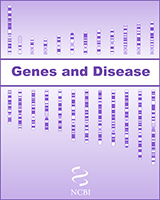NCBI Bookshelf. A service of the National Library of Medicine, National Institutes of Health.
National Center for Biotechnology Information (US). Genes and Disease [Internet]. Bethesda (MD): National Center for Biotechnology Information (US); 1998-.

As most of the cells in the human body are not in direct contact with the external environment, the circulatory system acts as a transport system for these cells. Two distinct fluids move through the circulatory system: blood and lymph. Blood carries oxygen and nutrients to the body's cells, and carries waste materials away. Blood also carries hormones, which control body processes, and antibodies, to fight invading germs. The heart is the pump that keeps this transport system moving. Together, the blood, heart, and blood vessels form the circulatory system.
The lymphatic system (lymph, lymph nodes and lymph vessels) supports the circulatory system by draining excess fluids and proteins from tissues back into the bloodstream, thereby preventing tissue swelling. It also serves as a defense system for the body, filtering out organisms that cause disease, producing white blood cells, and generating antibodies.
The biochemical make up of lymph — the fluid found in the lymphatic vessels — varies with the site of origin. For example, lymph from bone marrow, spleen, and thymus have high concentrations of white blood cells for fighting infection, while lymph from intestines is high in fat that has been absorbed during digestion. Damage to the lymphatic and circulatory systems leaves the body more susceptible to sickness and infection, as well as to serious conditions such as cancer.
- "Elephantiasis" occurs after years of infection of the lymph vessels with parasites. Lymph fluid accumulates causing massive swelling of the legs.
- Scientists once thought that all blood was the same, leading to deadly blood transfusion reactions.
- Blood and Lymph Diseases - Genes and DiseaseBlood and Lymph Diseases - Genes and Disease
Your browsing activity is empty.
Activity recording is turned off.
See more...
